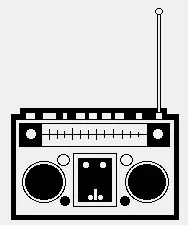The station Bruzz has both a DAB (211.648 MHz) and analog signal (98.80 MHz). The DAB signal rarely has enough strength/integrity for the tuner to play it. Sometimes it’s just really choppy, cutting out every ½ second. The FM signal is good enough… a little static but it’s certainly tolerable, unlike DAB.
So the question: is DAB normally broadcasted from the same transmission point as analog for a given station?


To build on this good answer, there’s an additional factor: How well a receiver can make use of the signal it receives.
I have both an old and a newish DAB radio. One can decode the audio pretty much anywhere in our home. The other only has stable reception if I put it by the window. It’s the same signal, but it’s not strong enough for the old DAB radio in most places at home.
Edit: This may be true for different FM radios too, but less noticeable as FM doesn’t have a “digital cliff” where the decoding just fails as
seenheard on DAB. Plus, DAB is comparatively new technology… Oldish FM radios still have decades of techy wisdom in their design, whereas as of today, old DAB radios haven’t had the benefit of time for the engineers to optimise their design.I’m considering building a directional FM antenna for an FM station that has almost no signal in most of the house. Otherwise I must put the receiver near the window and put the antenna in a specific position. So now I wonder if I should also build a omni-directional FM antenna, and whether that would also suit DAB frequencies. Since I would prefer to only run one coax cable throughout the house I guess I need to know if the directional and omni-directional antennas can simply be spliced together to share the same coax.
It seems like when a station has both a DAB and FM signal, a smart receiver could theoretically compare a short sample of the digital sound to the same clip of the FM signal and work out what part of the analog signal is noise and use that to cancel out the static from the analog signal. Would that be science fiction or does that sound feasible?
You can buy proper (directional) DAB roof aerials.